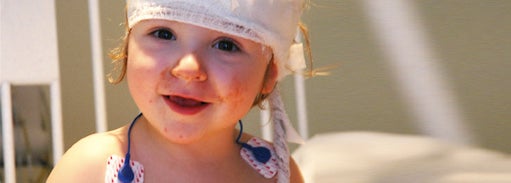In addition to collecting a clinical history of the patient, providers will often conduct tests to help reach an epilepsy diagnosis. A few of the most common tests are discussed below.
EEG Testing
Electroencephalograms (EEGs) are neurological tests that allow physicians to look at the brain’s electrical activity. It can help a physician decide if a patient is having seizures, and if so, what kind of treatments might be most effective.

There are different types of EEGs, and your provider will explain which option is best for you or your child. Tests can be performed over 1-2 hours in an outpatient setting, or a provider may prefer to conduct full day or overnight studies called long-term monitoring (LTM) to better understand a child’s seizures.
Downloads:
Preparing for an EEG – Outpatient
Preparing for an EEG – Inpatient (Overnight)
Sleep Evaluations
Some forms of epilepsy involve seizures that happen during sleep. This is sometimes called a "nocturnal" epilepsy disorder, though the seizures can occur any time the child is sleeping, not just as night. For other children, sleep deprivation can be a major trigger for seizures. If you are concerned about your child’s sleeping habits, be sure to discuss with your provider.
Genetic Testing for Epilepsy
In some cases, epilepsy and other neurodevelopmental disorders have a genetic basis. Therefore, genetic testing and counseling can be helpful for understanding an individual’s condition. This may translate to more specific treatment options.
CT Scans & MRIs
Sometimes it is helpful to examine the brain’s anatomy more closely. ACT (Computerized Tomography) scan or CAT scan is an X-ray of the brain and bones in the skull. It can identify substantial problems in the brain but is not very good for seeing the brain's fine details. MRI (Magnetic Resonance Imaging) uses radiofrequency waves and a strong magnetic field rather than X-rays to provide a clear and detailed picture of the brain.
